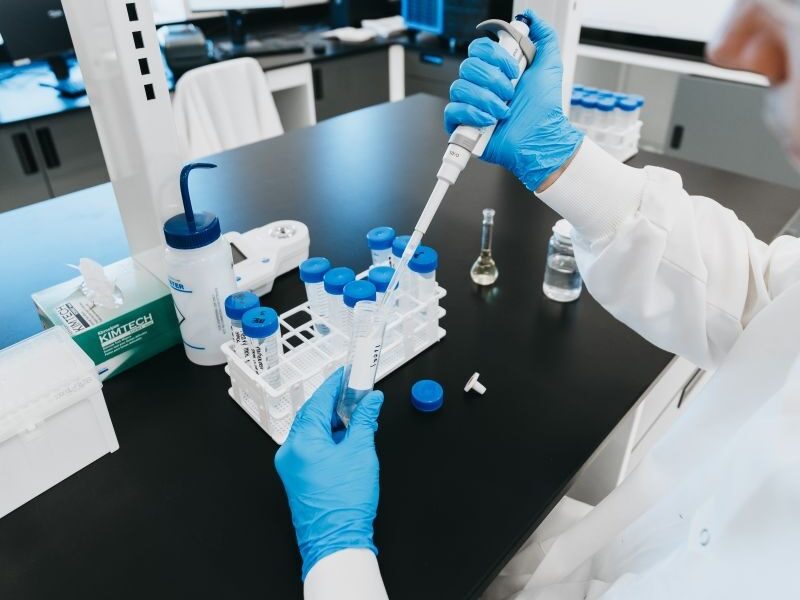Plasmids are circular DNA molecules that can carry and express specific genes of interest. They are frequently used as gene carriers in cell and gene therapy applications, such as viral vector production, DNA vaccines, and mRNA vaccines. Plasmids can also be used for research purposes, such as in vitro studies, pre-clinical animal models, and toxicology studies. Pre-clinical plasmid manufacturing is required to produce plasmids for these applications. This process involves producing large quantities of high-quality plasmids that meet specific standards and specifications
What is Plasmid Manufacturing?
Plasmid manufacturing is the process of producing large quantities of high-quality plasmids for these applications. It involves several steps, such as cloning and transformation into E. coli cells, fermentation, lysis, purification, formulation, and fill/finish.
Quality and Specifications for Pre-Clinical Plasmids
Plasmid manufacturing is the stage of plasmid production that precedes clinical trials. The manufacturer intends to provide sufficient plasmids for pre-clinical testing and evaluation of the safety and efficacy of the gene therapy product. Pre-clinical manufacturing must meet specific quality standards and specifications depending on the intended use and regulatory requirements.
There are different levels of quality for pre-clinical manufacturing, depending on the application and the stage of development. For example:
- Research-grade plasmids are suitable for in vitro studies or early-stage pre-clinical research. They are produced using standard laboratory methods and have minimal quality control testing.
- High-quality (HQ) plasmids are suitable for toxicology studies, GMP vector production for Phase I-II clinical trials, or as templates for GMP mRNA production. They are produced using validated methods and have undergone extensive quality control testing. They undergo manufacturing in dedicated, segregated non-GMP labs with complete materials and process control traceability
- cGMP plasmids are suitable for Phase I–III and commercial viral vector or DNA vaccine production. They are produced using cGMP-compliant methods and undergo rigorous quality control testing. They undergo manufacturing in cGMP clean room suites with full room changeovers before each production and complete QC monitoring throughout the production process.
Benefits of Pre-Clinical Manufacturing
- Improved safety and efficacy: Pre-clinical manufacturing can help ensure the plasmid DNA is safe and effective for animal studies. It can lessen the chance of unfavorable events in human clinical trials
- Increased efficiency: It can help increase gene therapy and vaccine development efficiency. It can also lead to faster development times and lower costs
- Improved quality: It helps improve plasmid DNA quality, efficacy, and safety in human clinical trials.
Pre-Clinical Manufacturing for Cell and Gene Therapy
Plasmid manufacturing is crucial for cell and gene therapy development, providing the necessary material for testing and validating the product. Pre-clinical plasmid manufacturing enables a smooth transition to clinical plasmid manufacturing by establishing a scalable and robust process that can be transferred to cGMP facilities without compromising quality.
Several contract development and manufacturing organizations offer pre-clinical manufacturing services for cell and gene therapy developers. These have the expertise, experience, and capacity to produce plasmids according to the client’s specifications and needs.
Conclusion
Pre-clinical plasmid manufacturing is significant in developing new gene therapies and vaccines. Manufacturers can help ensure the safety and efficacy of these new therapies and vaccines by providing quality plasmid DNA. By choosing a reliable and qualified CDMO partner, cell and gene therapy developers can ensure they receive high-quality plasmids that meet their expectations and regulatory standards.




